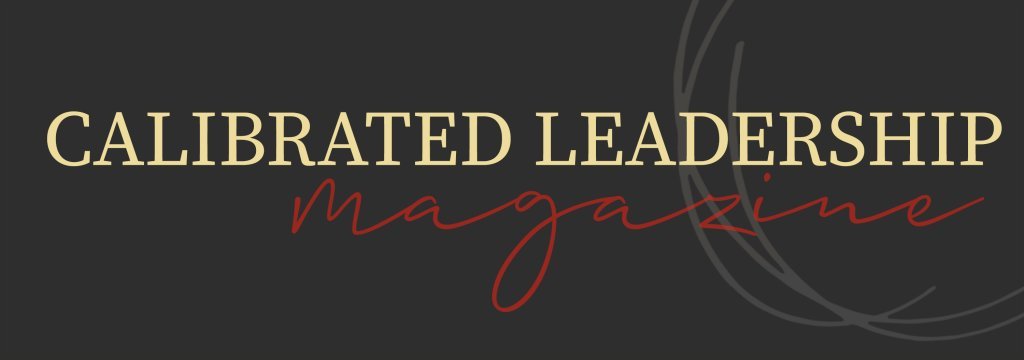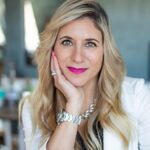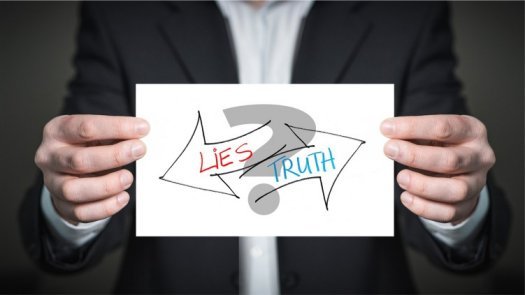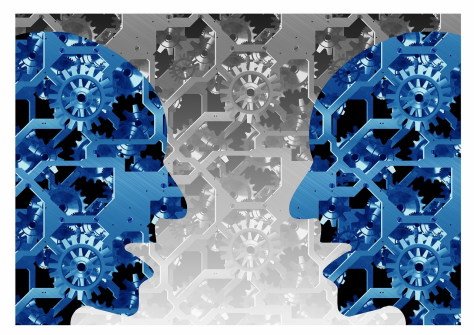
Lena Sisco takes on a journey of becoming and introduces us to her unique expertise.
- Issue: Summer 2023
- Leadership, Personal development

Interviewing Expert, TV Expert Witness, Deceptive Analysis Expert and Body Language Expert
Lena, your journey is fascinating, let’s start at the beginning, and tell us who you are and how you got to do what you’re doing today.
I have always had a drive for adventure, an analytical mind, and high intuition especially about people. Those traits drove me to want to become an archaeologist. The lure was adventure, people, and discovery. I became an archaeologist and got to dig overseas in Greece and Italy, but shockingly, I felt something was missing. Becoming an archaeologist was my dream job, then once I was doing it, I knew it wasn’t. Instead of beating myself up over the years I spent in school (I got may Masters from Brown in Archaeology) I was thankful for the journey and experiences – because they were wonderful. However, I knew I needed a new adventure.
A few years later I needed a job (and some direction because I still wasn’t sure what it was I was supposed to do in life) and I joined the Navy as a Reservist – on a dare from a friend – and later became an Intelligence Officer. So instead of Indiana Jones, I became James Bond.
I got to challenge myself by joining the military in the first place, and then again when I got trained by the Marine Corps in interrogation – which was the most challenging training I have ever been through. Upon graduation and being certified as a USMC interrogator, I thought, wow, I get to do this super cool thing and go on an adventure, all while helping humanity – which came later when I deployed to Guantanamo Bay Cuba as an interrogator after 9/11.
Being intuitive I was able to connect with the detainees and influence trust easily. I knew then that this was what I was meant to do; stop bad people from doing bad things by persuading them to confide in me, trust me, and tell me the truth – that truth helped protect our nation from terrorist attacks.
I am a type A personality so I like to charge, I like a challenge, and I thrive in a high op-tempo. I am an extrovert so I am naturally motivated and stimulated by new people and experiences. That doesn’t mean I don’t appreciate my yoga and reading.
Fast forward to what I do now; I took all those inter and intrapersonal skills, my interviewing and negotiation skills, my leadership knowledge and expertise in human behavior and body language, and I teach people those skills to so they can use them and benefit from them individually.
Some of my clients come to me because they want to gain more clients, sell more product, network more effectively. Others want to enhance their leadership skills and vet information for truthfulness to make wiser decisions – both personally and professionally. And some want to be more aware of how they come across to others and are looking to ramp up their confidence and communication skills.
I know you like to solve Puzzles, tell us how does this translates into your work.
Humans are the greatest puzzle to solve. And figuring out the best ways to communicate with them and persuade them to be honest with me became the ultimate puzzle for me; and I loved it. While I was interrogating at GTMO in Camp Delta, I started creating a method (now called the SISCO Method) of interviewing that was rapport-based, non-accusatory, and strategic in nature. And ever since 2005 I have been perfecting it and now I train federal and state law enforcement around the country.

I based my method on two pillars, trust and truth. If you have trust, the truth will come. But, you have to know how to get someone’s trust and then how to get the truth, and those encompass a lot of techniques; I call it a recipe because the techniques are ingredients and if you miss one ingredient, the end product will not come out right.
Becoming and expert in eliciting TRUTH doesn’t happen overnight. What does your journey looked like to get to where you are today?
A lot of practice! A friend of mine says, “you have to put in the reps if you want to get good.” I put in a lot of reps at GTMO and even afterwards. I am still putting in the reps. I still help out in cold-cases, assist law enforcement in criminal cases, I did a TV show for three years as an expert interrogator/lie detector, and I am a guest expert on media outlets such as Fox NewsNow, as an expert in body language and analyzing people to see if they are being truthful. I study, I watch, I review, I interview…repeat!
When you are naturally empathetic and intuitive, and you understand that to get the truth, trust must come first, it is easy to create a path to truth. Trust will only come when you can make people feel safe and comfortable. Inherently, all humans want to be honest. I just have to find out what will motivate them to be honest which happens in a thoroughly planned out conversation.
At GTMO I was able to do this successfully with people who came from a different culture, spoke a different language and who hated me because I was an American. Can you imagine how easy it is to do with your clients, staff, and peers?

Why do you think Truth is such a critical aspect in our relationships (personal and professional)?
In all types of relationships, we need truth to make wiser decisions and persuade people to want to be honest with us. It’s really all about protection and safety. Protecting ourselves, our businesses, our friends and family, our finances and investments, and so much more.
Personally, you need to trust someone you are going to bring into your home and family, who you are going to raise children with, who you are going to make financial decisions with, who you are going to be intimate and vulnerable with.
Professionally, we need the truth to make critical decisions effectively and timely. That may be who to hire and fire? Who to buy from or sell to? Who to follow, task, and manage? Who to partner and collaborate with? Who will you protect your assets, information, intellectual property?
As you said, “You are a master choreographer of human interaction; because it is a dance. We give and take, we speak and listen, we lead and follow.”
What is the biggest lesson you have learned along in your journey?
Knowing how I come across especially when stressed. We don’t know what we don’t know especially about ourselves, and if no one has the courage to give us feedback, we can’t fix what could possibly destroy trusting relationships. I tend to get very structured with little room for flexibility when it comes to decisions when I am stressed. I also tend to communicate more directly and lack empathy and so I can come across as rigid and insensitive. Now, thankfully, I know this about myself and I know how to fix it. I pay close attention to how I sound and how I look when communicating. In my training, I help people become more self-aware of their body language and their words as well as tone of voice. Because you may say one word or phrase, or do one thing with your hands that immediately results in a potential client to losing their trust in you. And the worst part is that you won’t even know what you did or said that destroyed that relationship.
What are the common myths that you are encountering in your line of work?
If you want to accurately assess someone – we call it profiling in the field – to build rapport, gain their trust and get the truth (and now how to spot the lies!), you need to know much more than just body language!
I get asked to go on media outlets to assess the body language of whoever is in the news at the moment to determine if they are lying. The sad thing is that no one understands I cannot just talk about body language. Nonverbal cues are only half the message. If I am going to conduct an accurate assessment in order to determine if someone is lying I need to analyze both their body language and the words they are saying, AND, analyze them at the same time. Because the most accurate indicator of deception is behavioral incongruency; when the body language and spoken language are not in sync. For example, if I say “yes” verbally but I shake my head ‘no.’
People still believe that communication is 93% nonverbal and 7% verbal. How could that even be possible? Dr. Albert Mehrabian created this percentage value for communication from one experiment he conducted back in the 1970’s but even he said not to misrepresent his research findings and apply this to all communication. Yet people do and still quote this statistic today; and even more worrisome, they believe it. There is no research study that proves one channel of communication is more effective than the other in determining the accuracy of a message; that’s a myth. You have to use common sense. Here’s what you need to know: You need open awareness so you can analyze both channels of communication at the same time, verbal and nonverbal, to see if someone is in sync. If they are, they are most likely being truthful.
As a body language expert there is also a misconception that I am judging people. I don’t judge people and I can’t read their minds. I assess your facial expressions of emotion to see if they are congruent, I analyze your gestures, postures, and movements; I listen to your voice, breath, rate of speech, and your words. And then I have the complete picture of what you are really saying or not saying.
It’s hard work and takes a lot of focus if you want to accurately detect truth from deception. And, then, you have to know how to get the truth.
Which brings me to another myth about interrogation. Interrogation is a conversation. That’s all. Unfortunately most people believe interrogation uses harsh tactics because of Hollywood but also for what happened years ago at Abu Gharib prison in Iraq where Guards, not interrogators, tortured prisoners. That was an atrocity and it makes me sick to my stomach. No interrogator I know has every committed illegal acts of violence, coercion, or torture. Interrogators are highly trained in interview techniques and the psychology of human behavior. Our philosophy is you attract more flies with honey than vinegar. As an interrogator during one of the most horrific times at one of the most controversial places, I will tell you that my morale compass led the way for me every day I was there and I had huge successes gathering high-value intelligence.
Speaking of how you bring your expertise into the world right now, what are some area where your work creates the most impact?
I work with people who want to learn how to influence trust in relationships to get the truth to make wiser decisions. The skills include all facets of verbal and nonverbal communication practices.
 Yes, I have a lot of real estate agents, sales people, leaders, entrepreneurs, business owners, C-Suite executives, and human resources looking to ramp up their revenue, but I also get individuals starting a new journey in life. People who have left their careers and are open to a new one but aren’t sure how to make decisions that will impact their future. And, of course, I train lawyers, law enforcement, and the intelligence community because by the very nature of their job, they need to be able to differentiate between the truth and deception.
Yes, I have a lot of real estate agents, sales people, leaders, entrepreneurs, business owners, C-Suite executives, and human resources looking to ramp up their revenue, but I also get individuals starting a new journey in life. People who have left their careers and are open to a new one but aren’t sure how to make decisions that will impact their future. And, of course, I train lawyers, law enforcement, and the intelligence community because by the very nature of their job, they need to be able to differentiate between the truth and deception.
My expertise brings value to many different groups of people.
- For those seeking self-help, who want to take action to have emotional control, look and feel confident, and create healthy relationships.
- For those industry experts and key decisions makers who want to innovate and stand out amongst their competitors.
- For the entrepreneur or small business owner who wants to be sure they are making the right decisions based on the real facts now for a successful business later.
- For leaders who want to refine how they communicate, verbally and nonverbally, to positively grow and influence followers.
Tell me something about yourself that is not on your Linkedin profile.
I have a lot of triggers that spark my temper. I would love to be able to say I am so Zen especially when it comes to challenging situations and conflict, but sadly, I am not Zen. I say and do things I wished I hadn’t and that are unproductive. I make up a story to fill in missing information to make sense out of a confusing situation. And this is what I teach! But just because I teach techniques to overcome ineffective communication practices, doesn’t mean I am immune to them; I am human after all. This is a daily struggle because these triggers are in my DNA, it’s who I am and so I work at it constantly.
I do, however, fully understand, even in the heat of the moment, that if I am angered, I angered myself. No other person can create an emotion in me. We are the only ones who can create our emotions. Emotions come from the thoughts we think, and it’s safe to say other people can’t think for us. So knowing that helps me calm down a lot faster and see things more objectively.


